Heatwave ‘crippled’ London’s infrastructure as visitor numbers fell by a quarter, climate data shows
and live on Freeview channel 276
Heatwaves this summer left London’s infrastructure “crippled” as visitor numbers fell by a quarter, climate data has found.
July’s extreme weather negatively affected the capital’s economy, Sadiq Khan will say as he outlines a call for action to avoid “climate crisis”.
Advertisement
Hide AdAdvertisement
Hide Ad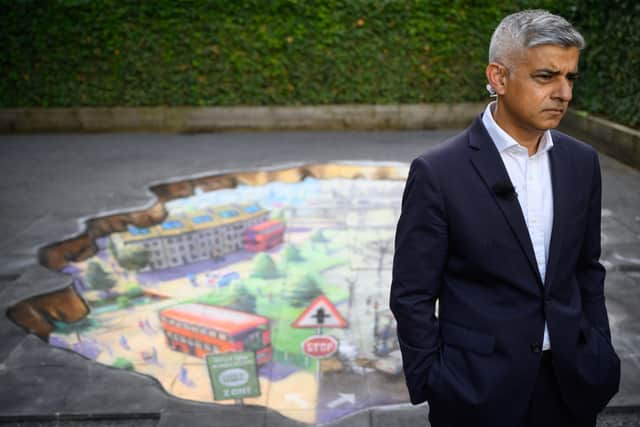

Addressing the Reuters IMPACT Conference, Khan is expected to call for greater action and investment needed to tackle the adverse effects of climate change when speaking at the event attended by world leaders and business executives.
Data from July 18, 2022, as the heatwave peaked at above 35C, shows there were 385,640 daytime workers in central London, compared to the usual 518,000 workers - a drop of 26%.
While there were 275,000 daytime visitors to central London on the same day, when 361,000 people would be expected - meaning footfall was 6% of what it would usually be.
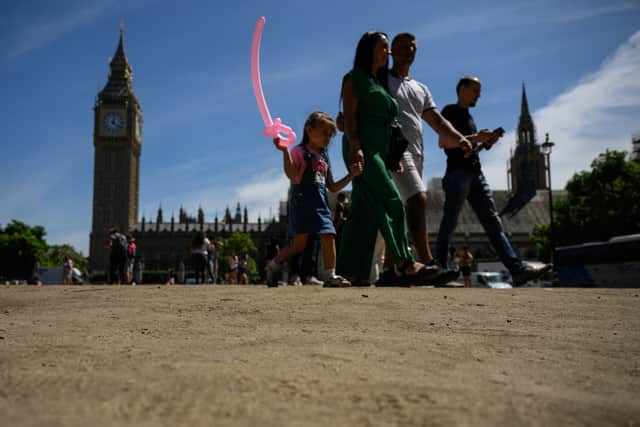

Advertisement
Hide AdAdvertisement
Hide AdThe mayor is expected to say: “For decades, we’ve known this train has been hurtling in our direction.
“But it’s only now that it’s finally caught up with us that the sense of crisis is at its most acute.
“On July 19, temperatures in our city soared to 40C. For the first time ever, London overheated.
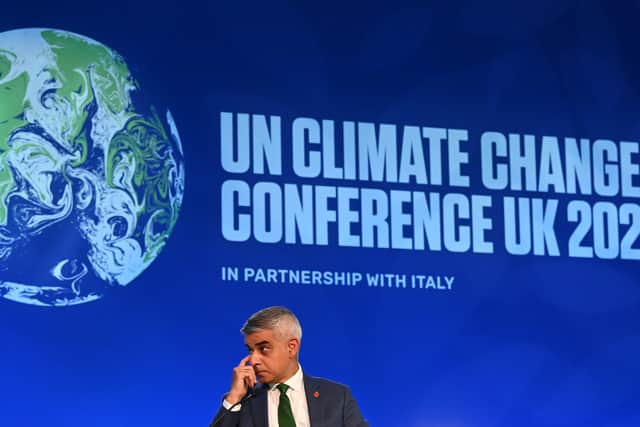

“Vicious wildfires overwhelmed emergency services. Destroyed homes. And infrastructure was crippled by extreme heat.”
Advertisement
Hide AdAdvertisement
Hide AdHe will add: “We also saw a dramatic drop in footfall across central London to the detriment of our businesses. When we look back at this period of history no one will be able claim with any credibility that we were not given fair warning.
Khan will make the point that the reduction in footfall in the city of London during the heatwave this summer was comparable to when Plan B Covid restrictions were introduced in December 2021, highlighting the effect that extreme weather events can have on London’s economy.
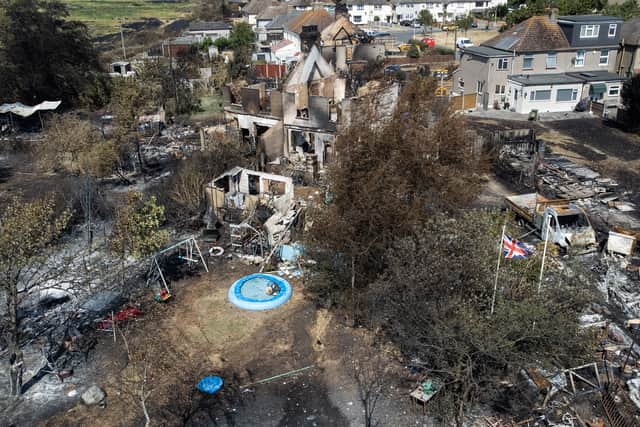

“Crises do often take an age to arrive. But we can be in no doubt – this one – the climate crisis – is now upon us,” he will say.
“The challenge is daunting, but we should take hope from the scale of our ambition and the strength of our resolve.
Advertisement
Hide AdAdvertisement
Hide Ad“Our success rests on collaboration – on all of us working in unison for a better tomorrow.”
Khan will urge private sector firms to speed up their efforts to invest in going green in order to meet the capital’s 2030 net zero target.
He will say: “Our estimate puts the figure in excess of £75 billion worth of investment - and we simply can’t deliver that without the private sector, without you.
“I know you’re all dealing with inflationary pressures right now, but there are huge opportunities – and rewards – to be seized by accelerating our efforts to achieve Net Zero by 2030.
Advertisement
Hide AdAdvertisement
Hide Ad“London’s ambition for a sustainable economy is within reach. And with your help, it can – and will – be achieved.”
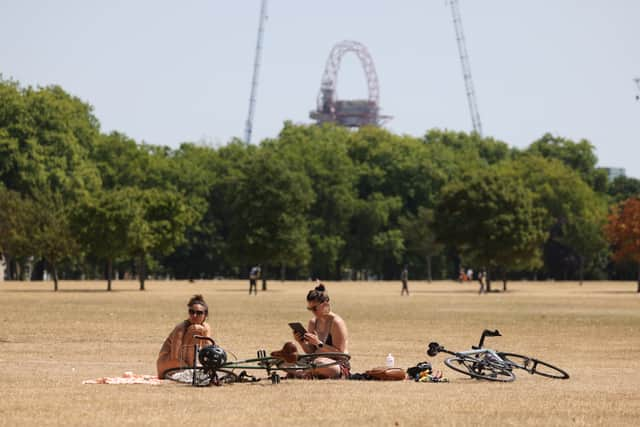

Khan says he been aiming to tackle climate change as mayor, from investing in green jobs, skills and infrastructure; increasing protected cycle lanes, hydrogen powered buses, and electric vehicle charging points, to introducing the ULEZ and consulting on its expansion.
However, there has been criticism of his efforts, including from activists and Green Party assembly members opposed to the construction of the Silvertown Tunnel, and from Conservatives who oppose the expansion of the ULEZ.
Speaking today, Nick Rogers, the City Hall Conservatives transport spokesperson, said: “Sadiq Khan’s ULEZ expansion would have had a negligible effect on air quality, but would have been devastating for small businesses and low income families.”
Comment Guidelines
National World encourages reader discussion on our stories. User feedback, insights and back-and-forth exchanges add a rich layer of context to reporting. Please review our Community Guidelines before commenting.
